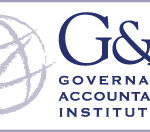A new report of how well the worlds airlines report on corporate sustainability (CS) has revealed a mixed set of results. The PwC analysis, launched today (14 November) has shown that while there has been a positive increase in the number of airlines producing such reports, there is still much room for improvement.
In launching their Building trust in the air report, PwCs global Transportation & Logistics practice, along with the global sustainability team, sampled 46 airlines including Ryanair, Lufthansa, Qantas and Cathay Pacific. Of those, 30 produced CS reports. A team of experts then rated the quality of the reports using set criteria. The reports authors hope it will act as a catalyst to encourage the airline industry to become more transparent for stakeholders such as investors and passengers.
PwCs global Transportation & Logistics leader, Klaus-Dieter Ruske, said:
More airlines are moving CS to the top of the agenda. Making sure that they are engaging with their stakeholders and reporting on all relevant issues will be key. Our report shows that some companies are already making a good start, but the industry as a whole needs to be more proactive.
Jeroen Kruijd, one of the reports authors and PwC airline sustainability expert, added:
There is an opportunity, and a need, for airlines to work on CS reporting. We expect the industry to begin work on harmonising standards and the challenge for them now is to demonstrate how they are tackling all relevant issues such as diversity, waste and customer satisfaction. If they can do this, it will lead to a more successful business.
A good report should align a businesss corporate and sustainability strategies, making the case that a more sustainable business is better for its stakeholders. It should include environmental, social, economic and corporate governance data, and with the EU Emissions Trading Scheme taking off, many airlines will be under increasing pressure to disclose such information.
Malcolm Preston, PwCs global head of Sustainability, added:
"Across all industry sectors we see the market leaders pursuing excellence in reporting their overall activities, seeking to demonstrate how their sustainability activity is fundamental to their business strategy, and how they are addressing both the risks and opportunities that sustainability presents to their businesses."
Although 30 of the 46 sampled airlines produce a sustainability report, 62 of the top 100 airlines worldwide did not. Of the 30 PwC analysed, some of the best included Air France KLM, Iberia, Delta Air Lines, LAN Airlines, Lufthansa, Southwest Airlines and UPS.
Key data of reports sampled:
· 70% came clean about their CO2 emissions
· 33% did not include any measures of fuel efficiency
· 60% failed to report on waste production and water consumption
· 10% gave data about lost baggage and around 25% reported on customer complaints
· 77% are keen to report on community activities.
· No airline disclosed information around CS in relation to executives take-home pay
Only a handful of airlines currently integrate their CS data into their overall annual report, and currently most CS reporting is voluntary. Companies that are concerned about the cost of producing such reports should start thinking now about the value-add it will give them in the long run. Those that do take it seriously could get the edge in a very competitive market, the report says.



